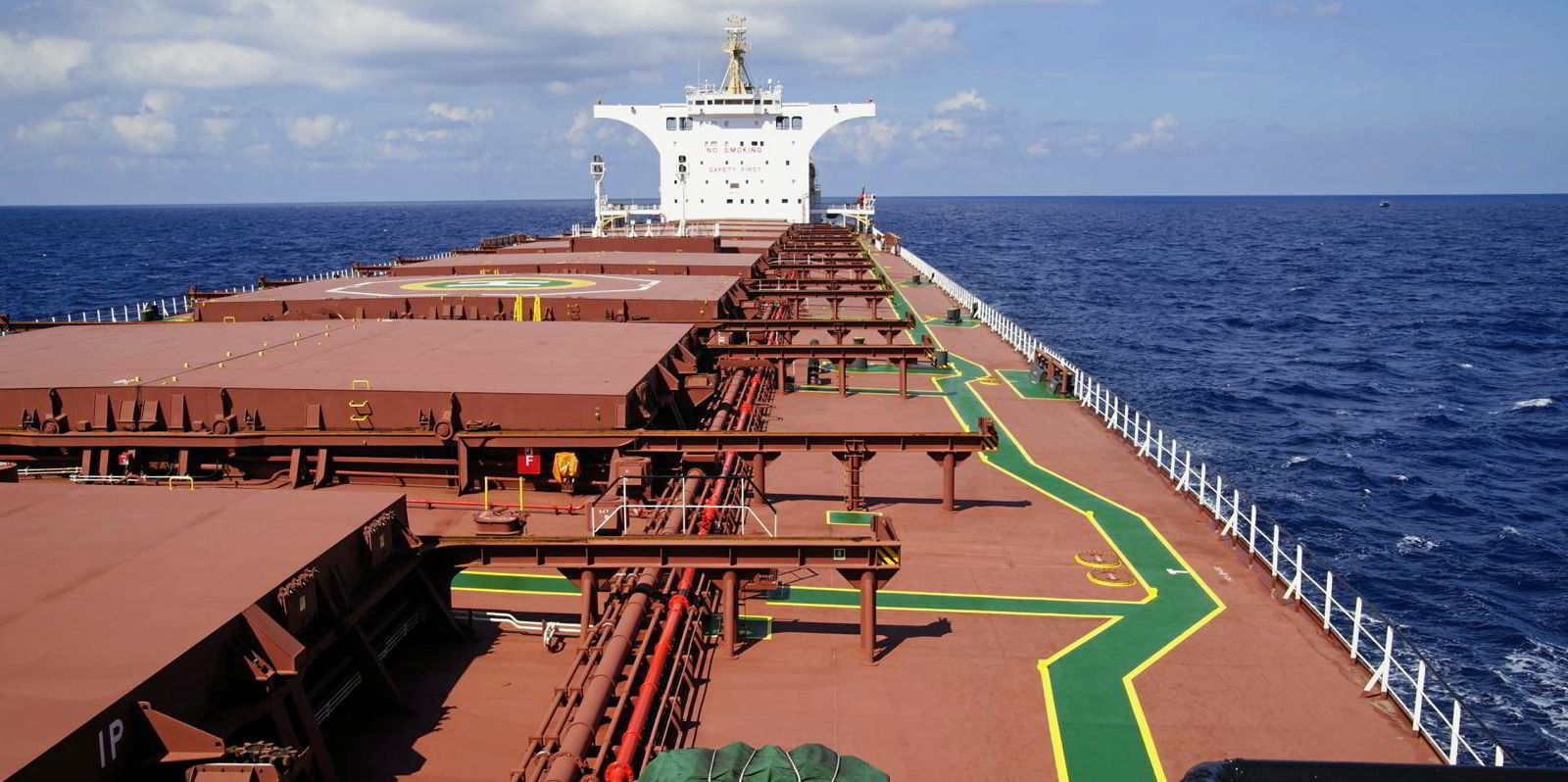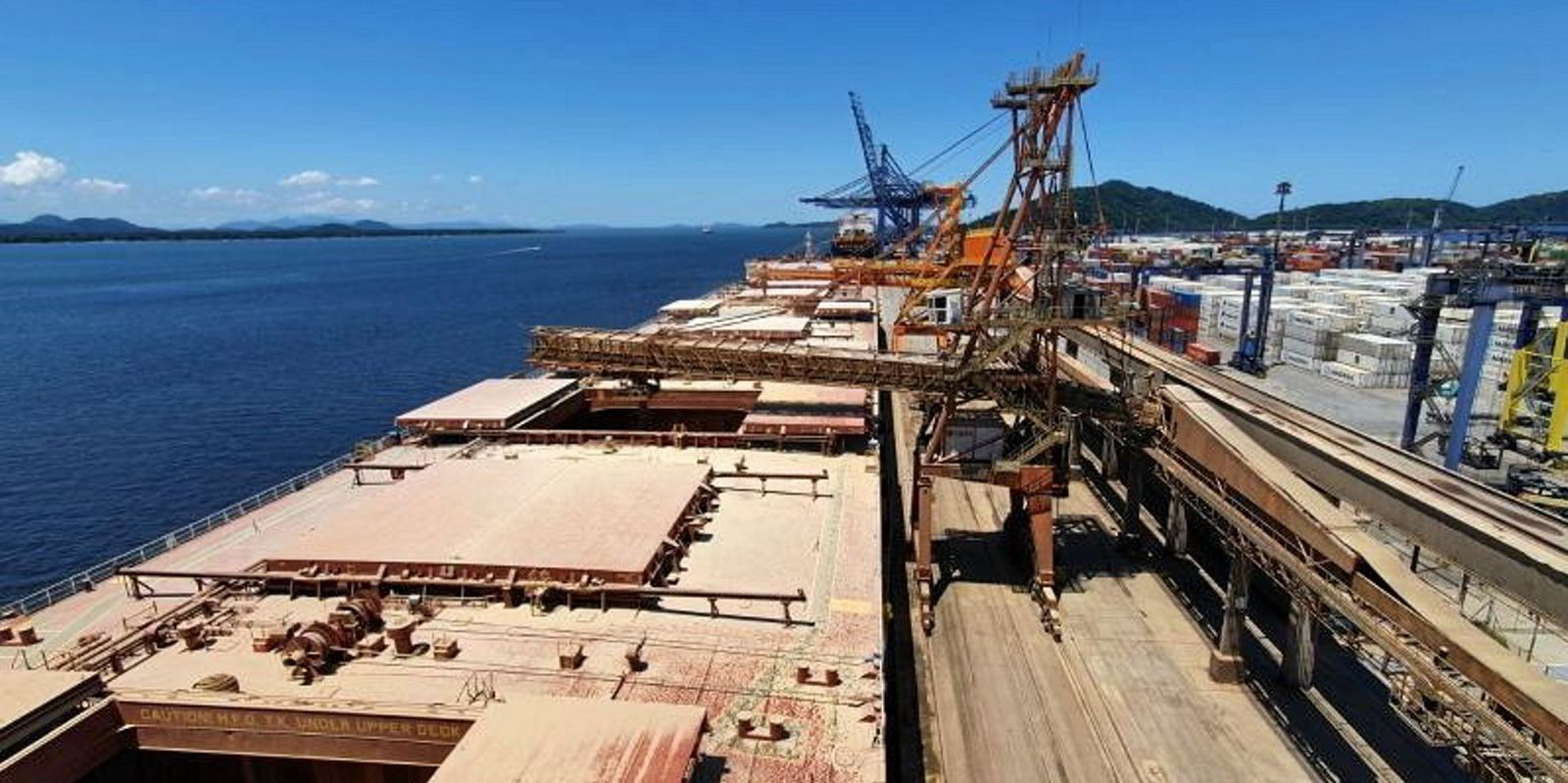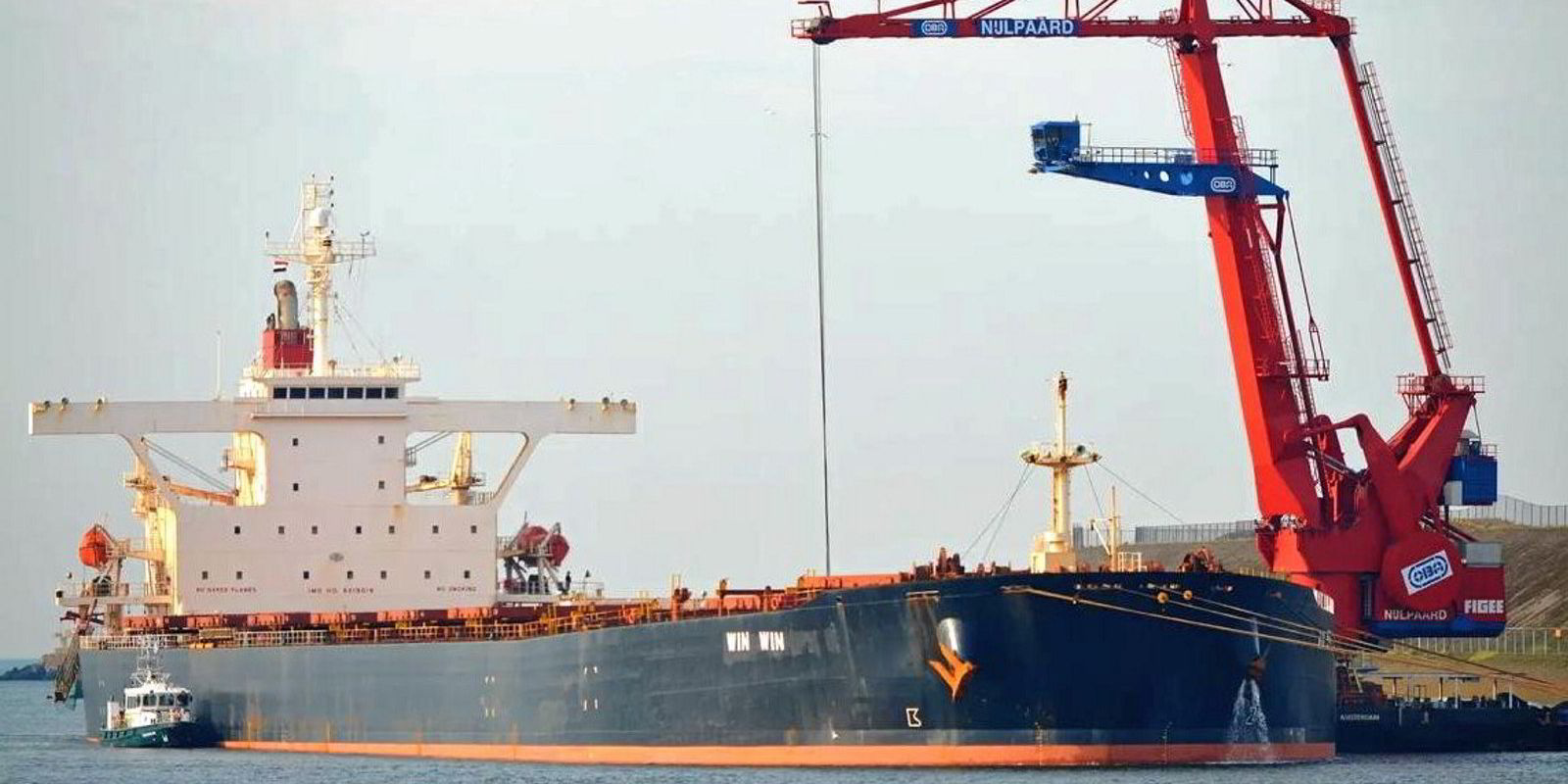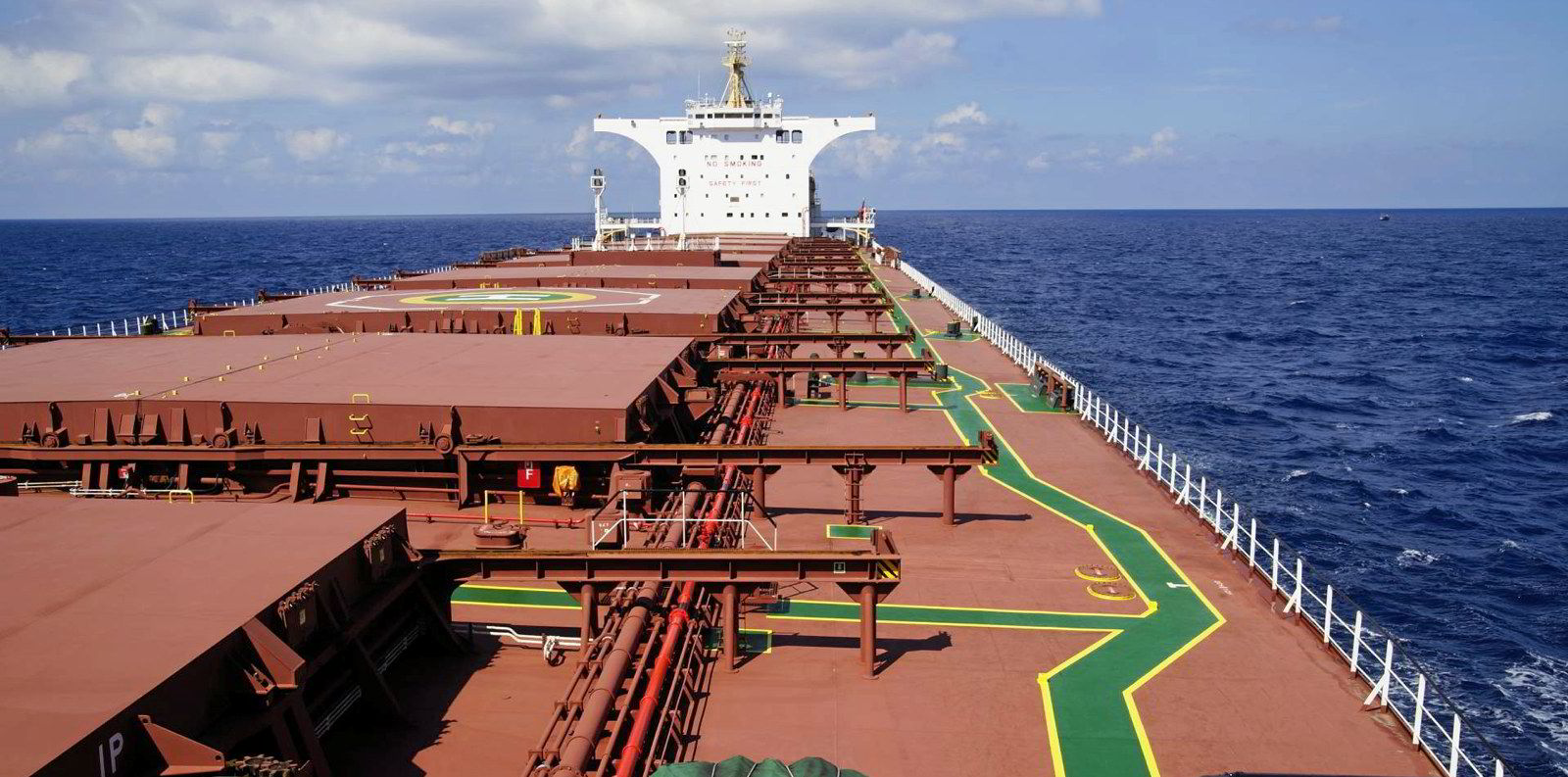Analysts are searching for explanations for the continuing drop in capesize rates against a backdrop of some positive cargo volumes.
Clarksons Securities said the sector’s earnings dropped 9% on Tuesday to $19,900 per day, with the forward freight agreement market for the rest of 2024 following suit.
This is down 40% over a month.
“Although the freight market has corrected quite heavily, it’s difficult to explain it by shipments,” the investment bank said.
Total iron ore cargoes saw a yearly high last week, with Brazilian shipments rebounding and Australian exports also at their highest level so far this year.
Clarksons also cited bauxite exports hitting an annual best last week, but coal shipments were more moderate.
“One potential explanation for the weakness could be the increased number of Valemax vessels arriving in Brazil over the past two weeks, decreasing the demand for capesize vessels in the region,” analysts led by Frode Morkedal said.
They added that the news in the iron ore market has also been less positive.
Chinese iron ore inventories posted an increase last week, which seems to stem from a slowdown in steel production, according to data from Custeel.
Further dampening the sentiment is news of the China Iron & Steel Association calling on steelmakers across the country to take the initiative to reduce production, according to Mysteel.
Rates down $3,040 from China
The Baltic Exchange average of five capesize routed dropped 243 points to 2,394 on Tuesday.
The China-Brazil round voyage assessment for an 180,000-tonne cargo was down $3,040 at $18,580 per day.
On Friday, UK shipbroker Braemar said the Baltimore bridge collapse had been an aggravating factor in what was already a plunging capesize bulker market.
In its latest market report, the London-listed group said the US accident had “clearly been the main talking point” in the North Atlantic market.
The destruction of the Francis Scott Key Bridge last Tuesday by the Maersk-chartered container ship Dali trapped a number of dry cargo vessels in the port of Baltimore.
Braemar said: “Generally speaking, there has been a build-up of spot tonnage over the last week in the face of slightly softer spot demand.”
But the broker also pointed out that a couple of capesizes originally destined to load in Baltimore have been released into the wider market, augmenting ship supply.
At the same time, a small number of operator arbitrage cargoes were removed as a consequence of the accident, the London shop added.







